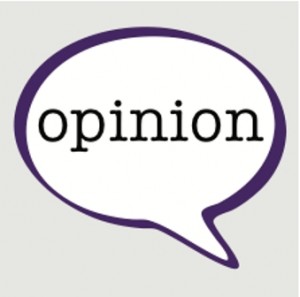“If you haven’t already done so, please stow your carry-on luggage underneath the seat in front of you or in an overhead bin. Stow all electronics, make sure seats are in an upright position with trays secured in front of you and all knives safely in your pocket.”
Excuse me, could you repeat that?
On Tuesday, March 5, the head of Transportation Security Administration announced that small pocket knives, once banned from aircraft cabins, would be allowed in U.S. planes beginning April 25. 
According to CNN, the knives permitted must have blades that are 2.36 inches or shorter and less than a half inch wide. The blade cannot lock into place and be fixed.
It’s been 12 years since 9/11 rocked us to our cores. The horrific events sparked fear in Americans from coast-to-coast. For a long time, there were few places that a person could go to escape the burden of tragedy, guilt and stress. But there were places that many chose to avoid, like airports.
National Security responded to America’s fear immediately by implementing Transportation Security Administration. TSA was put in place to strengthen the security of the nation’s transportation system. These are the people that secure our airports, screen our carry-ons and scan our bodies before sending us off to boarding.
Most everyone knows what it’s like to stand in that long security line, waiting for a cluster of unprepared travelers to wiggle their licenses from “accessible” places and remove shoes without creating a domino effect. It’s irritating in ways that I cannot explain, but I’ve never once wished that it didn’t exist because when I enter into the Minneapolis-St. Paul airport, I feel safe.
Why would anyone wish to compromise that?
TSA claims the updated regulations would allow officers to focus more of their attention and efforts on finding items of greater threat like explosives.
“We recognize that knives can do harm but we also recognize that there are a number of other items that people can carry on that can do just as much harm,” TSA Spokesperson David Castelvelter said, referencing things such as small scissors and nail files. “We have not had one case that we’re aware of where (one of those items) has caused harm to a passenger or crew member.” 
Under such justification, couldn’t we permit marijuana then? After all, a number of prescription medications can do just as much harm and they’re allowed in carry-ons.
What’s really problematic to me is that Castelvester acknowledges that any number of those items can do harm, but because passengers haven’t tried yet then it’s regarded as a non-issue. Isn’t it TSA’s job to be prepared for what could happen, even if a scenario doesn’t seem likely?
One could argue that the ban on pocket knives was put into effect at a time when almost everything was considered to be a risk. TSA was covering its bases, and as a result, it may have included pocket knives in the list of prohibited items when it really didn’t have to be.
I don’t buy it.
To suggest that our National Security’s judgement should be discredited because it was a time of stress and tragedy is ridiculous. All of the rules implemented after 9/11 were deliberate and rationalized.
According to CNN, at a January 2004 hearing of the 9/11 Commission, it was stated that at least two knives, similar to a Leatherman knife, were purchased by the hijackers and have not been recovered in the belongings that the hijackers left behind.
One staff member said, “Our best working hypothesis is that a number of the hijackers were carrying, permissible under the regulations in place at the time, permissible utility knives or pocket knives.”
This is why the rule was created. Those knives were never found so the rationale remains the same between 2004 and today. There is no evidence that suddenly, in the middle of April, pocket knives are going to become less dangerous.
Castelvelter may be right, the small items and pocket knives may never be used as weapons on an airplane. They might be used to fix things or open things, or even sit in a person’s pocket for the entire duration of the flight. However, TSA has to recognize that the rules implemented after 9/11 represent more than just the existence of safety.
Those rules represent a feeling of safety that serves American’s each time they walk into the airport. To believe that despite 9/11, we are protected, is one of the greatest triumphs of National Security. We’ve come too far to compromise that.
Carly Samuelson can be reached at samu5380@stthomas.edu.

